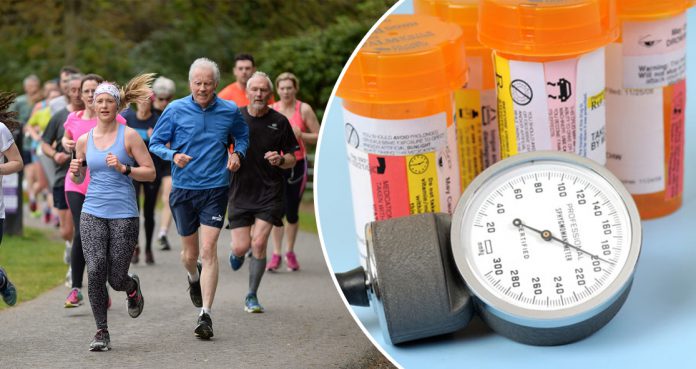According to two new reviews studying the effects of exercise on medical conditions, exercise can helps lower blood pressure and visceral body fat as effectively as prescription drugs.
The new studies are supporting the idea of considering exercise as a medicine. However, the researchers have raised questions about the types and amounts of exercise we need to treat different health problems. They have also said whether we really want to consider exercises as potential remedies.
The plausibility of officially prescribing exercise as a therapy for a variety of health conditions, including hypertension, diabetes (insulin resistance), obesity, osteoarthritis, etc., has been gaining attention amongst physicians and scientists.
The American College of Sports Medicine has already started a global initiative known as Exercise Is Medicine. The program aims to encourage physicians to recommend exercise prescriptions as part of disease management.
However, while drugs have to face extensive clinical research before the approval, exercises studies are not done on a large scale.
So, the researchers of the two new studies independently decided to analyze and evaluate their own exercise-vs-drugs scientific rumbles with slightly indirect approaches. They decided to mainly focus on systolic blood pressure.
Hypertension is a chronic disease that is treatable with prescription drugs, such as beta-blockers, angiotensin II receptor blockers, diuretics, and others, or exercise and a healthy diet.
Together, the studies included approximately 50,000 volunteers, with over 10,000 of them in the exercise studies.
The researchers analyzed the data from the exercise studies and drug tests. After evaluation, they found that all of the antihypertensive agents and any type of exercise reduced blood pressure, although medications typically achieve slightly greater reductions.
The scientists pointed out that the methods used in the exercise studies were less precise when compared with the drug tests.
As far as the other review is concerned, the researchers zeroed in on visceral fat, which is hazardous and increases the risk of metabolic issues. The FDA has approved several drugs to reduce visceral and other types of fat, including Orlistat and Metformin.
Exercise also has been shown to trim visceral fat. However, there is little science to it.
In the other review, drugs, and exercise succeeded for most participants in losing some visceral fat. However, in this review, exercise had an upper hand than the drugs.
Dr. Ian Neeland, an assistant professor of internal medicine at UT Southwestern Medical Center, who oversaw the new study, concluded, “Lifestyle changes such as exercise should be the first step” when people want to reduce visceral fat.
He also explained that aerobic exercise reduced visceral fat more efficiently than strength training.
The new reviews indicate that regular exercise can equal or increase the effects of prescription advised for treating high blood pressure and visceral fat. Dr. Neeland said, “Long-lasting studies that directly compare different drugs and various types of workouts are needed, although they will be logistically difficult and expensive.”























